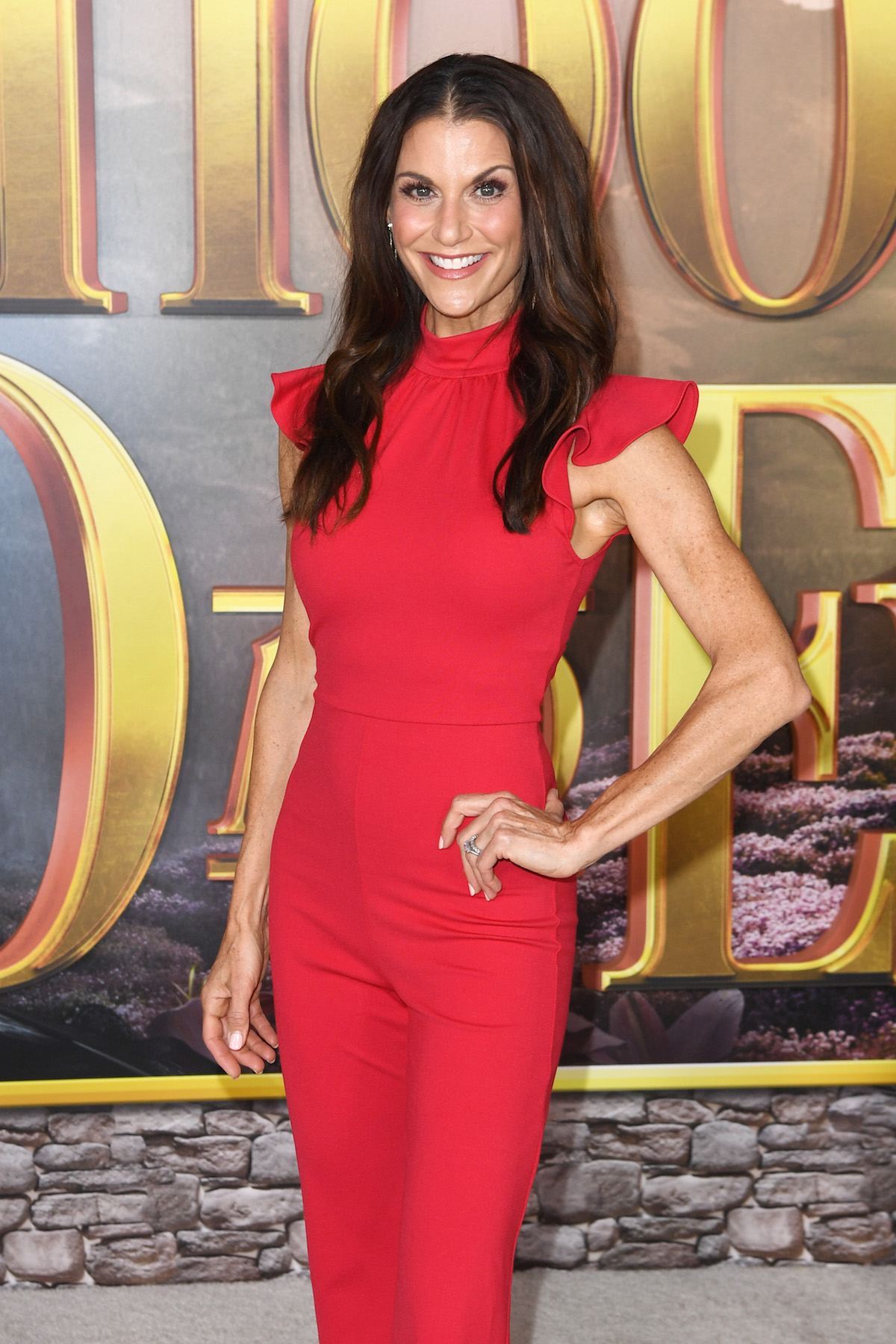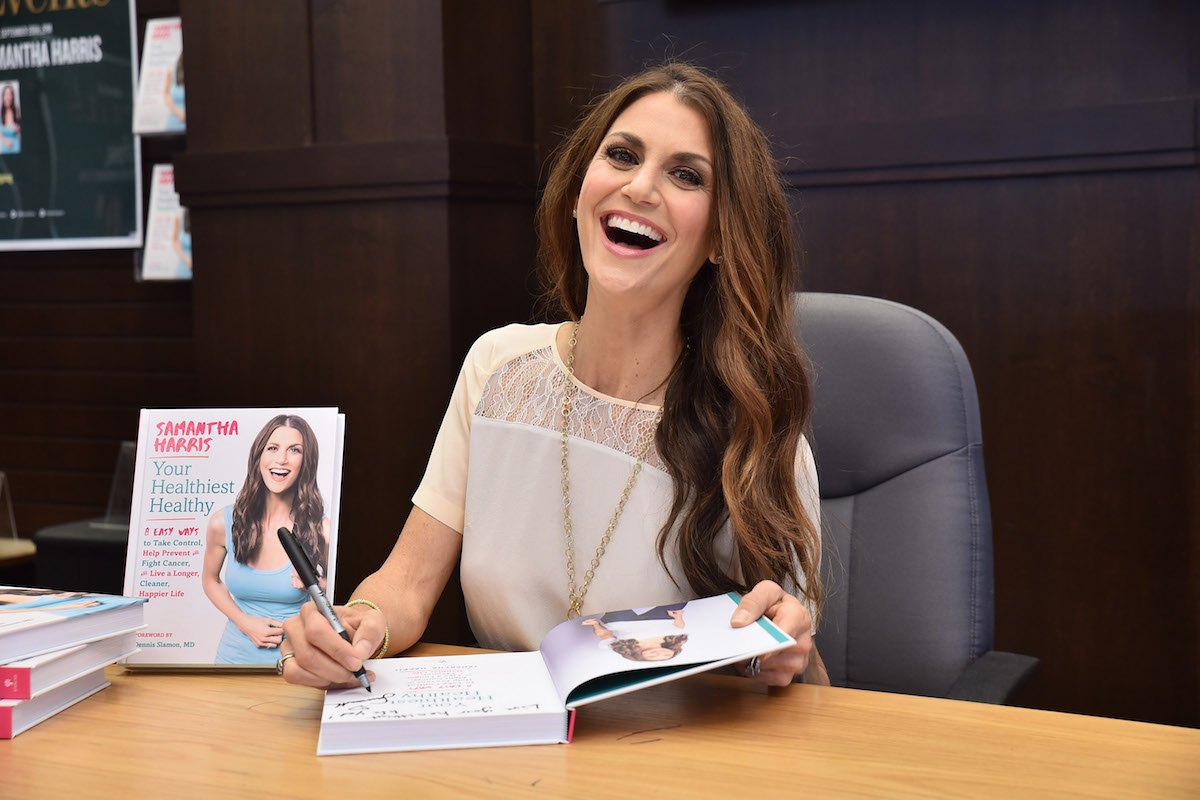The Importance of Advocating for Your Health
- It’s unfortunate that cancer misdiagnoses do occur and many patients report feeling dismissed or brushed off by their doctors when they report symptoms.
- TV host Samantha Harris has opened up about being misdiagnosed when seeking care about a lump she noticed in her breast.
- It's critically important to seek a second opinion after a diagnosis; one doctor may see something that a different doctor misses. Always push for answers when it comes to your health, and speak up.
Harris, now cancer free, found a lump in her breast following a "clear" mammogram in 2014, but kept pushing for answers despite being told the small growth was “nothing.”
Read More
It wasn’t until the Emmy-winning TV checked in with an oncologist, who also wasn’t worried about the lump, that Harris underwent further testing.
It took four months until Harris was diagnosed with breast cancer and learned the lump she found was both benign and malignant.
Describing the tumor, she said, “It was more palpable and you could literally see it sort of protruding. It felt the size of, I don’t know, a quarter and a half? But I think the actual cancer itself was much, much smaller, but it was what allowed me to feel it.”

(Getty Images)
“I was diagnosed with stage one and didn’t get diagnosed with stage two until after my mastectomy when we found out it had gone to the lymph node,” said Harris, who ultimately chose to have a double mastectomy.
“Throughout all of my meetings and appointments with an oncologist, everyone said, ‘we caught it so super early. The likelihood that it spread to a lymph node is very minimal.’ Right. And I remember the look on my surgeon’s face when I woke up from my mastectomy. They had to take out 11 lymph nodes.”
Following the mastectomy, as Harris was recovering for five days in the hospital, she learned she no longer had any cancerous lymph nodes in her body, offering her a sense of relief.
The spokesperson for YogaWorks Pink program, a partnership between Susan G. Komen and YogaWorks to provide free online yoga classes for the breast cancer community, underwent a bilateral mastectomy in 2014 with second stage reconstruction in August of the same year.
Harris, who got the “all clear” six weeks after her second-stage reconstruction, ultimately chose not to undergo chemotherapy and radiation.
“I’m very confident in my choices based on all the information and the education and the input I had from my doctors,” she explained.
Now she’s sharing her story in hopes that others can advocate for themselves and avoid getting misdiagnosed like she did.
“My oncologist told me, ‘You’re gonna live a long life. You’re not gonna die from this breast cancer.’ And I’m like, what the heck? This is three weeks in. How could not one person of the numerous doctors’ appointments I’ve had told me this? I’ve been panicked and worried and my kids are 3 and 6, my dad died at 50 of cancer,” she added.
Samantha Harris' Cancer Journey
Samantha Harris was diagnosed with breast cancer in March 2014 "even after a clear mammogram."
"It missed the cancer in my right breast," she explains on her website. "Two doctors told me the lump I found 11 days later was 'nothing.'
"Finally, four months after finding that lump, I went to see a breast cancer specialist (a surgical oncologist) someone whose main job it is to look at breasts all day and specializes in the detection of breast cancer."
When You're Getting a Mammogram, Ask About Dense Breasts
She then had a follow-up MRI, biopsy and ultrasound, but her cancer still remained undetected, though doctors did see that "something was not right."
"We decided to take it out," she wrote of the next steps in her cancer journey. "Thank goodness, because when the pathology from that lumpectomy came back, it was indeed invasive carcinoma, in addition to the less concerning ductal carcinoma in situ."
From there, she needed a bilateral mastectomy followed by reconstruction. And even though her cancer did spread to one lymph node, she did not need chemotherapy or radiation.
RELATED: Meet the Inspiring Women Who Pushed for Answers & Got a Correct Diagnosis
"This roller coaster was filled with immensely difficult decisions, but I am thrilled to report that they got it all and I am cancer free!" her website reads. "I will continue to be monitored closely for the rest of what doctors tell me is sure to be a long, healthy life.
"I remain on an estrogen-blocker to keep any future breast cancer from rearing its ugly head and I am back to all my regular activities. Mom to two energetic, wonderful little girls. Work. Hitting the gym hard-core as always. Happiness."
Harris has remained focused on her health, in fact, she published, "Your Healthiest Healthy: 8 Easy Ways to Take Control, Help Prevent and Fight Cancer, and Live a Longer, Cleaner, Happier Life,” in 2018.
Understanding Your Risk
The risk of developing breast cancer varies greatly from person to person, so it's important to discuss your specific risk level with your doctor. That being said, there are some important risk factors to keep in mind.
Major Reduction in Cancer Risk by Following Old Standbys Diet and Exercise
In a previous interview with SurvivorNet, Dr. Comen laid out several risk factors for breast cancer including:
- Being a woman: Women are at a higher risk for breast cancer, though men can get the disease too.
- Age: "Breast cancer becomes increasingly more common as women age," Dr. Comen said.
- Family history: "Some people think that breast cancer is only inherited through genes on the mom's side,' Dr. Comen said. "But it can also be related to genetic mutations that could be found on the father's side."
- Having had a prior biopsy on an abnormal area: "There are different markers, that if a woman has had a biopsy, it's important that she talk to her doctor about whether those markers are lending themselves to an increased risk of breast cancer," Dr. Comen said. If you've had a biopsy that indicated atypical hyperplasia, for example, you are at an increased risk of breast cancer. Atypical hyperplasia isn't cancer, but it is a precancerous condition that describes an accumulation of abnormal cells in the milk ducts and lobules of the breast.
- Radiation exposure: Cancer survivors who've had radiation to their chest are at an increased risk of breast cancer.
- Lifetime estrogen exposure: "About 2/3 of breast cancer are driven by the hormone estrogen," Dr. Comen said. "So, that means if a woman has had her period at an early age and started to go through puberty at an early age, at seven, eight, nine, and potentially a later age of menopause, means that her lifetime of having had menstrual periods and being exposed to higher levels of estrogen is higher, and therefore her risk of breast cancer is slightly higher."
- Not having a child before age 30 or never having children
- Obesity
- Drinking alcohol
- Lack of exercise: "While there's more research to be done in this area, it looks like if a woman is not exercising, she may also increase her risk for breast cancer," Dr. Comen said.
Advocating for your Health
When it comes to your health, be a little pushy. You know your body better than anyone else. When you see a doctor for a problem, don't hesitate to make sure that your question is fully answered and that you are comfortable with the plan moving forward. From a doctor's perspective, every problem should have a diagnosis, a treatment, a plan for follow-up, and a plan for what happens next if the treatment doesn't work.
As a patient, if you don't feel like each of these four things has been accomplished, just ask! Even if it requires multiple visits or seeing additional providers for a second opinion, always be your own advocate.
Dr. Zuri Murrell from Cedars Sinai Medical Center in Los Angeles urges patients to push back when they feel that something is off.
"The truth is you have to be in tune with your body, and you realize that you are not the statistic," Dr. Murrell told SurvivorNet. "That's why it's important for you to actually educate yourself and be your own health care advocate."
Be Pushy, Be Your Own Advocate
Doctors are also not always in agreement about whether your symptoms might merit further testing. Sometimes, what your first doctor says might fall short of fact, and a second or third medical professional might be able to catch cancer before it grows and spreads. Dr. Steven Rosenberg, chief of surgery at the National Cancer Institute and one of America's most renowned cancer doctors, agrees.
"If I had any advice for you following a cancer diagnosis, it would be, first, to seek out multiple opinions as to the best care, because finding a doctor who is up to the latest information is important," Rosenberg previously told SurvivorNet in an earlier interview. "And it's always important to get other opinions so that you can make the best decisions for yourself in consultation with your care providers."
Cancer Research Legend Urges Patients to Get Multiple Opinions
Contributing: SurvivorNet Staff
Learn more about SurvivorNet's rigorous medical review process.
